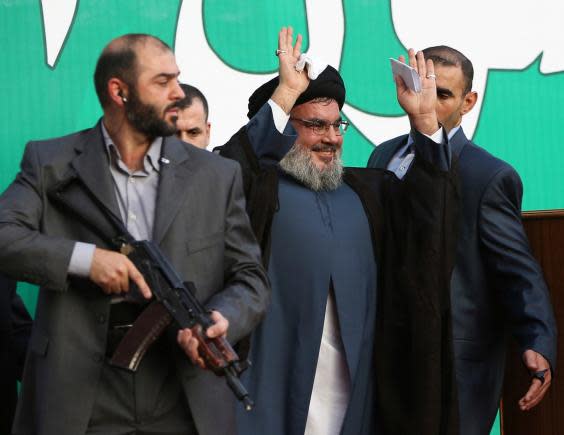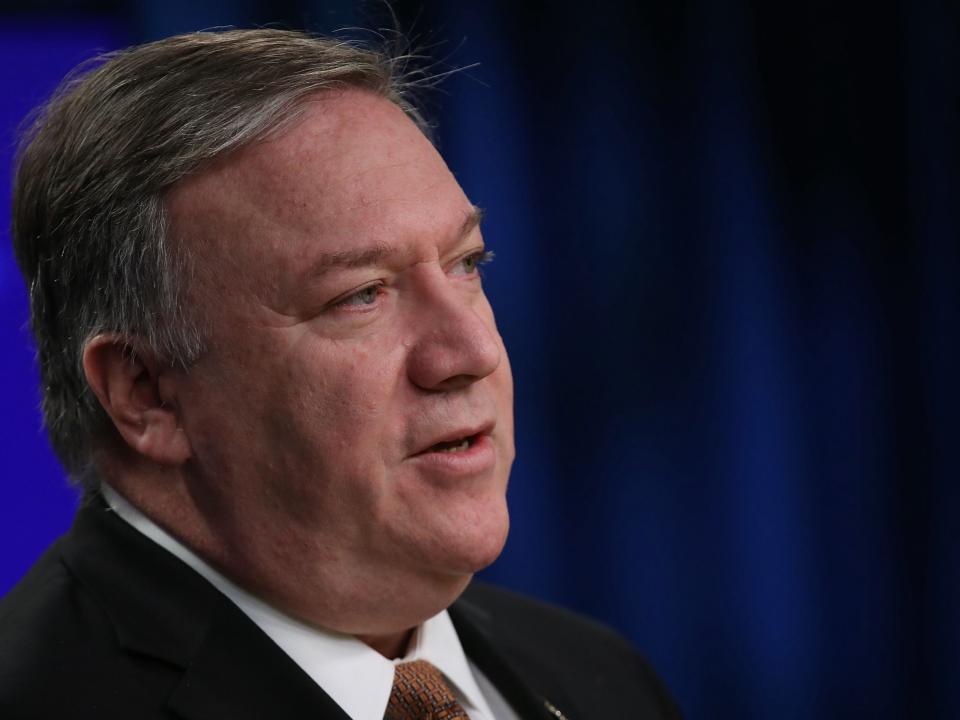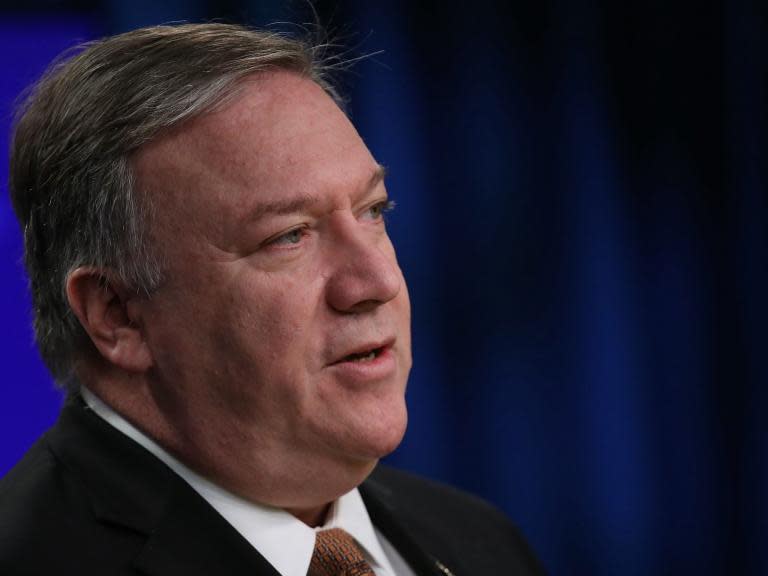Mike Pompeo in Lebanon: US secretary of state faces resistance after blistering attack on Hezbollah
US secretary of state Mike Pompeo launched a blistering attack on Hezbollah during a visit to Beirut on Friday, as he wrapped up a regional trip aimed at piling pressure on Iran and its proxies in the region.
Lebanon was the last stop on tour of the Middle East, following stops in Kuwait and Israel, in which Mr Pompeo has made the case to US allies for a more aggressive stance against Iran.
Speaking in the capital Beirut, he said Iran’s local ally Hezbollah had “put the Lebanese people at risk, with unilateral and unaccountable decisions on war and peace, and life and death”.
“The Lebanese people face a choice: bravely move forward as an independent and proud nation, or allow the dark ambitions of Iran and Hezbollah to dictate your future,” he said following a meeting with the country’s foreign minister, Gebran Bassil.
President Donald Trump’s administration has implemented sweeping sanctions against Iran in an effort to pressure it to return to renegotiate a landmark nuclear agreement reached under his predecessor, and to curb its military activity across the region. The White House described it as “the toughest sanctions regime ever imposed” on Tehran.
Hezbollah has also been hit with sanctions, with key financiers and entities tied to the group recently targeted by the US Treasury.
But Mr Pompeo has received a mixed reception in Lebanon, where the the president, parliament speaker and foreign minister are all allies of Hezbollah.
The country has long been divided over Iran’s role, and is suffering an economic crisis caused by years of political deadlock.
Many here fear that sanctions against Hezbollah might make the crisis even worse, and there are concerns that a renewed push against the group by the US may disturb the country’s fragile political balance.
The pro-Hezbollah Al Akhbar newspaper welcomed the secretary of state with a front page photograph calling him a “dirty Yankee” as he touched down in the country, and those who supported him as “lackeys”.
Mr Bassil, the foreign minister, said the group is “a Lebanese party and not a terrorist organisation”.
“Its categorisation as a terrorist organisation concerns the state which categorised it, rather than Lebanon,” he added.

That sentiment was echoed by the president, Michel Aoun, who told Mr Pompeo that Hezbollah “is a Lebanese party that has a popular base representing one of the main sects in the country”.
The president said in a separate statement on Friday that sanctions against the group are “hitting all Lebanese people as well as Lebanese banks”.
While the government of Lebanon is officially a US ally, Washington has grown increasingly concerned over Hezbollah’s growing strength.
Together with its electoral allies, it won more than 70 of parliament’s 128 seats in an election last year. The group has taken three of the 30 portfolios in the government formed by the western-backed prime minister Saad al-Hariri in January, including the health ministry – the first time it has held a ministry with a significant budget.
There were few surprises in Mr Pompeo’s speech, but the combativeness of his remarks on such a high profile visit is likely to cause a stir.
Hezbollah was founded in the early 1980s with the support of Iran, and spent much of its early existence fighting the Israeli occupation of southern Lebanon.
Following Lebanon’s devastating 1975-1990 civil war, Hezbollah was the only militia in the country which did not fully disarm, justifying its weapons as a necessary deterrent to another Israeli invasion.
Today, Hezbollah is the most powerful armed group in Lebanon, surpassing even the country’s national army. In recent years, it has played a key role in the Syrian civil war, intervening on the side of President Bashar al-Assad.
The group said it was motivated by a desire to stop the war spreading to Lebanon, but it also sought to protect the main delivery route for weapons from Iran, and prevent a majority Sunni opposition taking power.
Mr Pompeo said that sanctions against Iran and Hezbollah were working, and that the US would continue to pursue “all peaceful means” to weaken them.
“Our pressure on Iran is simple. It’s aimed at cutting off the funding for terrorists and it’s working. We believe that our work is already constraining Hezbollah’s activities,” he said.
Mr Pompeo’s Lebanon stop comes hot on the heels of another controversy, as President Trump faced criticism for an abrupt declaration that Washington will recognise Israel’s sovereignty over the Israeli-occupied Golan Heights.
The announcement on Thursday marks a major shift in American policy and gives Israeli prime minister Benjamin Netanyahu a political boost a month before what is expected to be a close election.
The administration has been considering recognising Israel’s sovereignty over the strategic highlands, which Israel captured from Syria in 1967, for some time and Mr Netanyahu had pressed the matter with Mr Pompeo during his visit this week.
Additional reporting by agencies

 Yahoo News
Yahoo News 

